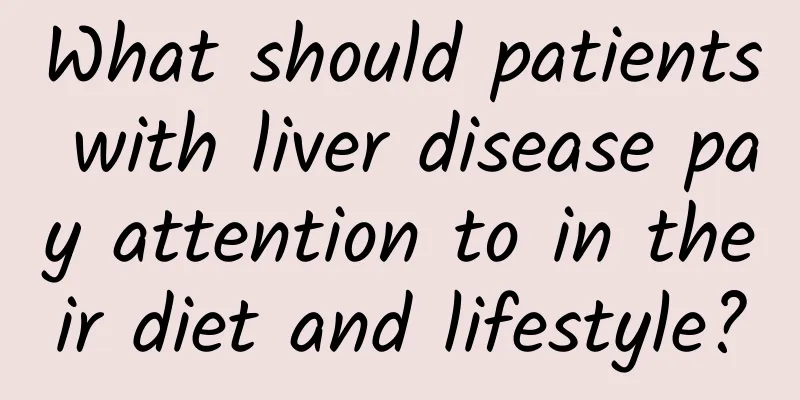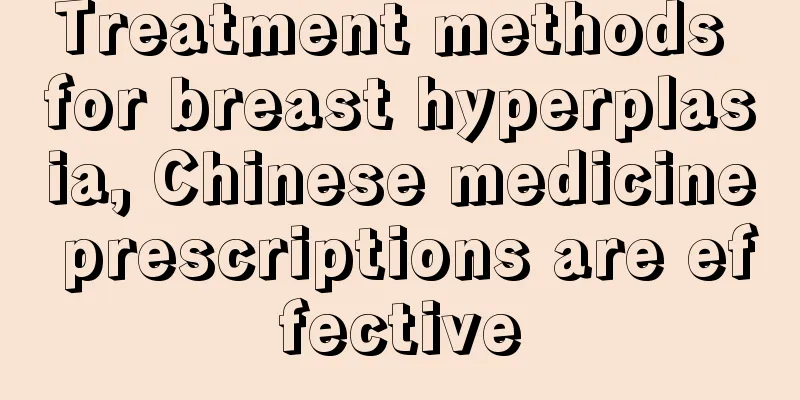What should patients with liver disease pay attention to in their diet and lifestyle?

|
Liver disease is a group of clinical conditions that involve a variety of diseases, including hepatitis, fatty liver, cirrhosis, etc. Diet and lifestyle are crucial to the management of liver disease and can affect the progression of the disease and quality of life. This article will provide in-depth knowledge on diet and lifestyle management for patients with liver disease, aiming to provide detailed guidance for patients and their families. 1. Understand the types and characteristics of liver disease 1.1 Classification of liver diseases Liver disease is a group of conditions involving abnormalities in the structure and function of the liver. They are broadly classified into different types, the main ones being: 1.1.1 Hepatitis Hepatitis refers to inflammation of liver tissue, usually caused by infection with viruses (such as hepatitis A, B, and C viruses), drugs, alcohol, or autoimmune factors. Hepatitis can develop acutely or become a chronic inflammation that eventually leads to liver damage. 1.1.2 Fatty liver Fatty liver is a disease caused by excessive accumulation of fat in liver cells, which is usually associated with metabolic diseases such as obesity, high cholesterol, and type 2 diabetes. The severity of fatty liver can be divided into mild, moderate and severe, and progression may lead to complications such as hepatitis and cirrhosis. 1.1.3 Cirrhosis Cirrhosis is the terminal stage of chronic liver disease, characterized by the replacement of normal liver tissue with fibrous tissue, leading to gradual impairment of liver function. Cirrhosis is usually caused by long-term chronic hepatitis, fatty liver, alcohol abuse, etc. It can lead to life-threatening complications such as ascites and esophageal varices. 1.2 Characteristics of liver disease 1.2.1 Impaired liver function The liver is responsible for many key functions in the body, including synthesizing proteins, breaking down toxins, storing energy, etc. Liver disease can cause these functions to be damaged to varying degrees, affecting the physiological activities of the whole body. 1.2.2 Inflammation and fibrosis Inflammation is a common feature in the development of liver disease. Chronic inflammation leads to the proliferation of fibrous tissue, scarring, and eventually cirrhosis. This process affects the structure and function of the liver. 1.2.3 Reversibility and irreversibility Some liver diseases are reversible in the early stages, and the liver may recover some of its functions through proper treatment and lifestyle management. However, once it develops to advanced stages such as cirrhosis, it may cause irreversible damage, affecting the patient's quality of life and prognosis. 1.2.4 Risk of complications Patients with liver disease are prone to a series of complications, such as ascites, esophageal varices, hepatic encephalopathy, etc. These complications may threaten the patient's life and therefore need to be identified and treated early. 1.3 Individualized treatment Patients with different types of liver disease require individualized treatment plans, and a reasonable treatment plan should be developed based on the specific cause, condition, and overall condition of the patient. Therefore, it is particularly important to develop personalized medical and lifestyle management strategies based on understanding the type and characteristics of liver disease. 2. Dietary management principles 2.1 Low-fat diet Fat is one of the main metabolites of the liver, so a low-fat diet is key for people with liver disease. Avoid high-fat foods, especially saturated fat and trans fat. 2.2 Adequate amount of high-quality protein Protein is essential for maintaining liver function, but patients should choose high-quality protein, such as fish, lean meat, and plant foods high in protein. 2.3 Low-salt diet For patients with cirrhosis, a low-salt diet can help alleviate symptoms such as ascites. Limit high-salt foods and focus on eating foods with moderate sodium content. 2.4 Control sugar intake High sugar intake may lead to fatty liver and insulin resistance, so patients should limit their intake of sugar and processed foods. 2.5 Vitamin and mineral supplementation Patients with liver disease are often malnourished and should ensure adequate intake of vitamins and minerals, especially vitamins B, C, D and zinc. 3. Lifestyle management 3.1 Moderate aerobic exercise Aerobic exercise has a positive effect on liver health. Moderate exercise can promote blood circulation, improve metabolism, and help repair and regenerate liver cells. Recommended exercises include walking, swimming, jogging, etc., but before starting a new exercise plan, patients should consult a doctor's advice to ensure that they choose an exercise method that is suitable for their individual conditions. 3.2 Quitting drinking and smoking Alcohol and tobacco are seriously harmful to the liver, so patients with liver disease should resolutely quit drinking and smoking. Alcohol and nicotine are both toxic substances to the liver and can cause fatty liver, hepatitis and other diseases. Quitting drinking and smoking not only helps improve liver health, but also has a positive impact on overall health. 3.3 Rational use of drugs People with liver disease should be extra cautious when taking medications, as some medications can tax the liver. Before starting a new medication, patients should tell their doctor about their liver disease to ensure that their doctor can choose a safe medication for them. In addition, patients should avoid buying over-the-counter medications on their own to prevent potential drug interactions. 3.4 Regular physical examination Regular physical examinations are key to managing liver disease. Through regular physical examinations, doctors can monitor patients' liver function, disease progression, and potential complications. Early detection of problems can help take appropriate treatment measures and increase the success rate of treatment. 4. Conclusion The popular science guide to diet and lifestyle for patients with liver disease is intended to help patients better manage their disease and improve their quality of life. However, given that each patient's condition is different, it is recommended to develop a personalized diet and lifestyle plan under the guidance of a doctor. Through scientific diet and lifestyle management, patients with liver disease can better control their health, slow the progression of the disease, and move towards a healthier tomorrow. (He Shan, Second Affiliated Hospital of Shenyang Medical College) |
>>: China Bone Health Popular Science Guide
Recommend
The milk is not coming out and the milk is swollen severely
A new mother will encounter various problems duri...
Are diabetic nephropathy and renal diabetes the same thing?
Are diabetic nephropathy and renal diabetes the s...
Can I still get pregnant with an IUD?
Theoretically speaking, it is very reliable for w...
Dietary taboos for luteinizing
A high luteinizing hormone is a result that many ...
Why does female vaginal discharge turn black?
As we all know, leucorrhea is a kind of secretion...
"Health from Food" Series丨What foods are good for people with high uric acid?
The 2021 China Hyperuricemia and Gout Trend White...
My premature ovarian failure is finally cured
Premature ovarian failure refers to the decline o...
Blindness is darkness, blindness is blankness, and it happens to one in 50 people!!!
Let's do a test first. Please close your eyes...
Common but uncommon bacillary dysentery
Author: Chen Dianjie, Fifth Medical Center, PLA G...
Why does my iPhone have no signal? How can I restore my iPhone contacts after changing the SIM card?
The soul of a mobile phone is to receive signals ...
Smoking after abortion
For women, if they have an abortion, they need to...
How long does it take to give birth if the contractions last every 10 minutes?
Uterine contraction, simply known as uterine cont...
Dysmenorrhea pain to the point of cold sweats
When it comes to the problem of dysmenorrhea, it ...
How long will postpartum hair loss last?
Postpartum hair loss will take half a year, which...
What causes ovarian cysts?
In today's life, the incidence of gynecologic...









